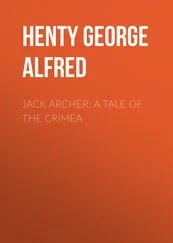George Henty - A Roving Commission - or, Through the Black Insurrection at Hayti
Здесь есть возможность читать онлайн «George Henty - A Roving Commission - or, Through the Black Insurrection at Hayti» — ознакомительный отрывок электронной книги совершенно бесплатно, а после прочтения отрывка купить полную версию. В некоторых случаях можно слушать аудио, скачать через торрент в формате fb2 и присутствует краткое содержание. Жанр: foreign_prose, Морские приключения, на английском языке. Описание произведения, (предисловие) а так же отзывы посетителей доступны на портале библиотеки ЛибКат.
- Название:A Roving Commission: or, Through the Black Insurrection at Hayti
- Автор:
- Жанр:
- Год:неизвестен
- ISBN:нет данных
- Рейтинг книги:5 / 5. Голосов: 1
-
Избранное:Добавить в избранное
- Отзывы:
-
Ваша оценка:
- 100
- 1
- 2
- 3
- 4
- 5
A Roving Commission: or, Through the Black Insurrection at Hayti: краткое содержание, описание и аннотация
Предлагаем к чтению аннотацию, описание, краткое содержание или предисловие (зависит от того, что написал сам автор книги «A Roving Commission: or, Through the Black Insurrection at Hayti»). Если вы не нашли необходимую информацию о книге — напишите в комментариях, мы постараемся отыскать её.
A Roving Commission: or, Through the Black Insurrection at Hayti — читать онлайн ознакомительный отрывок
Ниже представлен текст книги, разбитый по страницам. Система сохранения места последней прочитанной страницы, позволяет с удобством читать онлайн бесплатно книгу «A Roving Commission: or, Through the Black Insurrection at Hayti», без необходимости каждый раз заново искать на чём Вы остановились. Поставьте закладку, и сможете в любой момент перейти на страницу, на которой закончили чтение.
Интервал:
Закладка:
"I should not be surprised if they tried to-night. Shall I bring ten of the men on shore at once, sir?"
"Well, perhaps it would be as well. Forty men are not a very large force for this length of palisade and to work some of the guns at the point where they may attack us, and I expect their first rush will be a serious one, and we shall have all our work cut out for us. There is one thing; we can rely, in case of their making a way in, on the slaves. By this time they quite understand that we are friends and that the people who had been firing on us are their enemies, and I believe they would fight like demons rather than fall into their hands again. I have torn up a bale of white calico and have given a strip of it to each man to tie round his head, so that we can tell friend from foe and they can recognize each other in the dark. The enemy won't reckon on that, and will think that they have only a small body of whites to deal with. Do you notice how silent the woods are now? I think we may take that as a sign that they are preparing for mischief."
"The sooner it comes the better. Have you plenty of port fires, Mr. Playford?"
"Yes, a large boxful came on shore with the last boat yesterday."
Nat went off again, and picked out ten men to land with him.
"Get the other boat down," he said to the petty officer. "You will understand that if any attack is made on the flanks of the work you are to open fire at once upon them with grape. If a blue light is burned at the edge of the water ten men are to land instantly. You will remain in charge of the other five. So far as we know they have no boats, but they may have made a raft, and may intend to try and take the schooner, thinking that the crew will probably be on shore. So you must keep a sharp look-out on the other side as well as this. Light a blue light if you see a strong party coming off, and we will rejoin you at once."
He again landed with the ten men he had chosen.
"I have six men on watch," the lieutenant said, "and have put one of the blacks with each. I fancy their ears are sharper than ours are, and they will hear them coming before our men do."
Having nothing to do, Nat went into the barracoon and the other houses in which the slaves were placed. The contrast between their condition now and when he had seen them four days before, when they had first been found, was striking indeed. Now they were clean, and looked picturesque in their bright calico clothes. The look of dull and hopeless misery had passed away, and it seemed to him that with the good and plentiful food they had received they were already perceptibly plumper. They would have risen as he entered, but he signed to them to keep their places. They now had room to lie down in comfort, and while some sat chatting in groups others moved about. They were evidently proud of their arms, and some of them, seizing their pikes or hatchets, made signs how they would fight their enemies. A ship's lantern was burning in each hut.
In the women's huts the scene was still more interesting. The little children ran up to Nat with a new-born confidence in white men. Some of the women brought up babies to show him, and endeavoured to make him understand that these would soon have died had it not been for the sailors. The windows and doors stood open, and the evening breeze cleared the huts of the effluvium always present where a number of negroes congregate together. The sight of the poor creatures enraged Nat still more against the slavers, and made him long for them to begin their attack.
"It is quite pleasant to see them," he said as he joined Mr. Playford. "They are wonderfully changed in this short time. One would hardly have thought it possible. What will become of them?"
"I expect we shall take them to Jamaica, and that there they will be let out as free labourers to the planters. You see there is no law against the slave-trade, though public opinion is so strong on the subject at home that I have no doubt such a law will be passed before long. So, of course, we have not captured the slaves because of their being slaves, but simply as we should capture or destroy other property belonging to an enemy. Then, too, many of the slavers act as pirates if they get the chance, and there can be little doubt that a considerable quantity of the goods we found are the proceeds of piracy. Besides, you must remember that they fired at us before we fired at them. So we have plenty of good reasons for releasing these poor beggars. You see these seas swarm with scoundrels of all kinds, and it is quite safe to assume that all ships that cannot show that they are peaceful traders are engaged in nefarious business of some kind or other."
CHAPTER IV
A SHARP FIGHT
Mr. Playford and Nat were still talking when a sailor came up to him with one of the negroes.
"What is it, Tomkins?" the lieutenant asked.
"Well, sir, this 'ere black seems to hear something; he keeps pointing up into the wood and whispering something in his own lingo and looking very excited, so I thought I had better bring him here to you."
"Quite right, Tomkins; no doubt he does hear something, their ears are a good deal better than ours are. I will go up with you."
Accompanied by Nat, Mr. Playford went up on to the bank of earth that had been thrown up against the palisade, and found that the negroes there were all in a state of excitement, pointing in various directions and shaking their pikes angrily.
"They are coming, there is no doubt of that," he said. "I should say, by the motions of the blacks, that they are scattered through the wood. Well, we are ready for them. You had better get your slow matches alight, my lads; don't take the covers off the vents until the last moment, the dew is heavy."
They were joined now by Lieutenant Boldero. "I think I can hear them," he said.
"Yes. I should not have noticed if it had not been for the blacks, but there is certainly a confused noise in the air."
Listening attentively, they could hear a low rustling sound, with sometimes a faint crack as of a breaking stick.
"As soon as we think that they have got to the edge of the trees we will throw a fireball out in that direction, and then let them have it. We must keep them from getting closer if we can; when they once get near the foot of the palisade we shall not be able to depress our guns enough to fire upon them."
In a short time there was no question that a large number of men were making their way down through the wood. The blacks were now brought out from the houses and ranged along at the foot of the bank, where they were ordered to stay for the present, as were they to man the line they would be exposed to the assailants' bullets, while powerless to do any service until the latter began to attempt to scale the stockade.
"They must be gathering at the edge of the trees now," the lieutenant said at last. "Now, Tomkins, light that fireball and heave it over."
The ball, which was formed of old junk, was about the size of a man's head. The material had been smeared with tar mixed with sulphur, and Tomkins held in his hand the lanyard attached to it. He applied a slow match to it, and it broke into a blaze at once. Swinging it round his head, he hurled it far in front of him. By its light as it fell a crowd of figures could be seen gathered along the edge of the forest. A fierce yell broke from them, and loud shouts were raised by the leaders ordering them to charge, but before they could get into motion four guns poured a storm of grape among them, followed directly afterwards by the contents of four others. An appalling din of yells and shrieks was heard, but without an instant's hesitation a score of figures in European dress darted forward, followed by a mass of blacks, behind whom came another thirty or forty Europeans or mulattoes driving the negroes before them.
Читать дальшеИнтервал:
Закладка:
Похожие книги на «A Roving Commission: or, Through the Black Insurrection at Hayti»
Представляем Вашему вниманию похожие книги на «A Roving Commission: or, Through the Black Insurrection at Hayti» списком для выбора. Мы отобрали схожую по названию и смыслу литературу в надежде предоставить читателям больше вариантов отыскать новые, интересные, ещё непрочитанные произведения.
Обсуждение, отзывы о книге «A Roving Commission: or, Through the Black Insurrection at Hayti» и просто собственные мнения читателей. Оставьте ваши комментарии, напишите, что Вы думаете о произведении, его смысле или главных героях. Укажите что конкретно понравилось, а что нет, и почему Вы так считаете.












